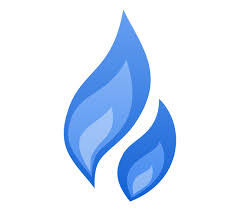Gas Safety
If Gas Odor is Slight:
Open windows and doors to ventilate the area.
Check pilot lights. Re-light only if you know how.
Call the Utilities if gas odor persists.
If Gas Odor is Strong:
DO NOT light matches.
DO NOT turn light switches ON or OFF.
DO NOT use the telephone.
If possible, notify everyone in the building to leave immediately.
CALL the Utilities from a neighbor's phone.
DO NOT re-enter your home until the gas company has told you it is safe to do so.
What You Can't Smell:
Carbon monoxide, or CO, is a poisonous yet odorless gas produced when carbon based fuels such as coal, oil, gasoline, propane, wood, and natural gas are incompletely burned. The early stages of CO poisoning include:
Dizziness
Flu-like symptoms
Fatigue
Throbbing headache
You would be wise to suspect CO poisoning if you feel ill or if all the members of your family feel ill at the same time.
If you suspect CO poisoning, or if you have a CO detector and the alarm sounds, leave your home immediately. If you or a family member is ill, obtain medical attention. Call the Fire Department - 911, from another location. Never stay in a building where you suspect leaking CO.
Potential Hazards of Natural Gas:
Fire or Explosion
Extremely flammable; easily ignited by heat, sparks or flames
Will form explosive mixtures with air
Vapor may travel to ignition source and flashback
Health
Natural gas released at high concentrations in an enclosed space causing displacement of oxygen can produce dizziness, headaches, loss of coordination, and narcosis.
Extremely high concentrations can cause irritation or asphyxiation by exclusion of oxygen.
Natural gas is odorless, tasteless and colorless. A non-toxic odorant is added to give gas its distinctive (rotten egg) smell as a warning that gas is present.
THINK SAFETY FIRST
Customer Responsibilities:
The customer assumes all the responsibility for the gas piping from the outlet side of the gas meter and all piping inside the residence or building. The customer is responsible for all appliances and proper venting. At the time of connection, the customer will be notified of any unsafe conditions found in the residence or building by the Utility. The Utility reserves the right to terminate or discontinue service until such conditions are made safe and can pass Utility Standards.
Caring for Your Gas Meter in Winter:
Outdoor natural gas meter and/or pressure regulator sets are designed to withstand extreme weather conditions. But please remember to protect them from ice and snow build-ups during our harsh winter months.
Clean and repair your leaky eaves gutters regularly to prevent ice and melting snow from dripping onto the natural gas meter and/or pressure regulator set causing them to be encased in ice when the weather is cold.
Don't pile snow against your natural gas meter and/or pressure regulator set when shoveling or using a snow blower.
Never allow snow to completely cover your natural gas meter and/or pressure regulator set. Remove soft snow build-up gently, using only a broom or your hand.
Call the Utilities if you notice an ice build-up on any part of the natural gas meter and/or pressure regulator set. Do not try to remove it by kicking or hitting the gas meter or piping.
It's up to you to use appliances safely and to use safe gas appliances!
